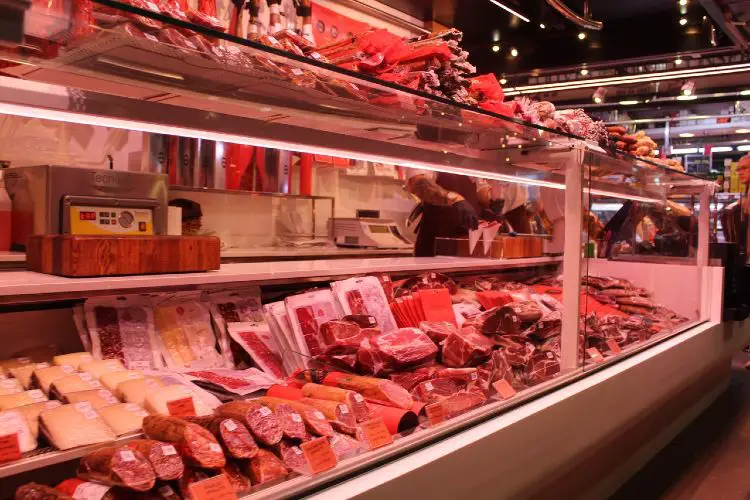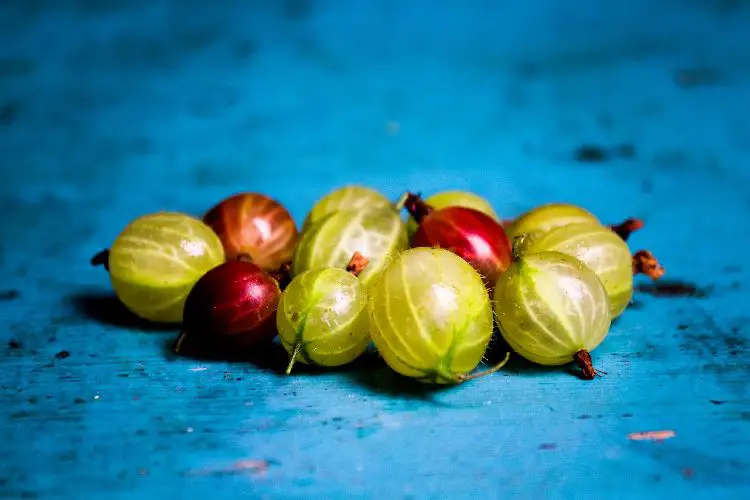Kate Poole’s Little Rose Bakery
Sometimes serendipity creates a small spark that ignites the creation of a brand new business. In October 2008 Kate Poole went to the cashier’s till in the food hall of Fortnum and Mason in London to pay for some cakes and biscuits that she had bought, with the small germ of an idea inside her head that she might like to set up a biscuit making business. She had gone shopping in the temple of all foodie delights to see what types of biscuits were already available on the market. The lady at the cashier started chatting to Kate about baking and she let on that F&M were looking for an artisanal baker to make high quality decorated biscuits.
Swing the clock hands forward six months, and after much trial and error, Kate had finally achieved the perfect ginger biscuits for the exacting standards of the F&M buyer and has been supplying them ever since. Except since then the biscuit repertoire of the Little Rose Bakery that was created out of that singular chance conversation has grown. And grown, and grown and grown.
Kate Poole lives in a beautiful house on the outskirts of an enchanting Hampshire village, Bishop’s Waltham. In two small outbuildings, one of which used to be a guest cottage, she has built a very enviable little artisanal food company, of which many women would be so proud to own and run. Kate laughs out loud, “I have become quite obsessed about biscuit making, and when I get into something, I always have to research it to the death!” It is this attention to detail and obsession about authenticity that captivates my attention.
I am standing in the spotless kitchen of the little brick cottage at the bottom of the garden, in the actual biscuit dough making, rolling, cutting and baking section, and Kate is showing me her biscuit dough rolling machine. It is a marvellous contraption that enables the professional baker to roll dough out to within a millimetre of precision and evenness. The equipment cost for such a venture is quite high: there is a large professional oven (for which Kate did get a rural business grant contribution), bakers’ stainless steel shelves, a built in kitchen with lots of drawers and cupboards, cookie cutters, boxes, baking tins, palettes, packaging, labelling, ticket machines, decorating equipment, sacks full of expensive ingredients…. The list goes on.
“When you start this sort of business,” explained Kate “the money just rolls out, and there is always more expenditure than income, so you are always watching costs and trying to keep up with sales, new customers and invoices.”
By 2010 Little Rose Bakery was working at full capacity. They made savoury malted biscuits which won three gold medals at the Gold Taste Awards, their customer base expanded to mail order catalogues, private companies, caterers, wholesalers, farm shops and major retailers, and Kate just kept honing, perfecting and widening her techniques, methodologies and ranges.
Yet what is astonishing is the level of detail and finesse to which the biscuits are prepared. Kate researches every ingredient that goes to make the dough and the sugar paste that decorates the biscuits and will not outsource any of the processes because other bakers do not meet her exacting standards. She has learned every step of the business growth process the hard way.
She told me that some successful artisanal food producers make the mistake, once they have reached a certain size, of taking on industrial premises, and as soon as they do that they are then unable to grow any more because their cost outlay is too great.
She gave me a few samples to taste. Surprisingly, for a product that is sent by parcel post all over the UK, her biscuits are unimaginably soft and crumbly in the mouth. The vanilla and lemon fragrance of one biscuit in particular is absolutely moreish. These are Rolls Royce biscuits that put all industrially manufactured ones to shame in a dark and lonely corner.
In the decorating and packaging outbuilding next door, Sue and Sandra are hard at work rolling fondant icing, or sugar paste, in various colours to cover small shapes: stars, hearts, pigs, bunnies, elephants, round, square, big, small, the shapes are infinite. The attention to detail and the sheer manual dexterity and eye hand co-ordination of their work is mind boggling. Colours are very soft pastels and the touch with which they are applied is light and delicate. We are all agreed that the mad craze for neon-coloured, glitter encrusted cupcakes, macaroons and whoopee-pies should be finally laid to rest.
In this room there is shelf upon shelf of ribbons and decorations. Some of these biscuits are sold as gifts, and, of course, the demand is very seasonal. Easter, Mother’s Day, Christmas and Valentine’s Day are extremely busy times of year.
“I love making biscuits, it’s like play dough to me!” enthuses Kate. As I swoop down to photograph the ready trays she chuckles “Oh look! They are so cute!”
Many people have inspired and helped Kate along the way. Hampshire Fare, www.hampshirefare.co.uk, a company that champions and supports artisanal food producers in the region have been of great support, as have the Long Barn shop, www.longbarn.co.uk and the catering business, Cress on Creative, www.cressoncreative.co.uk. She has a very good relationship with the management at her grain merchants, Robin Appel, www.robin-appel.co.uk. She takes two books off her work shelf, one by Peggy Porschen and one by Fiona Cairns. The latter, in particular, has been a great source of inspiration, and Kate rates her work very highly indeed, and says that Fiona is one of the reasons why she switched from just being a home baker to a professional one.
I comment that it is time for the publication and global syndication of “Kate Poole: The Baking Bible from the Queen of Artisanal Biscuit Making and Decorating”. Many plans are in the pipeline, and of course the company is still very small, very young and has no professional PR to blow its trumpet on what is a competitive industry media platform. After meeting Kate and her little team there is no doubt in my mind that this business is a classic “Made in Britain” success story with great potential. Through all the hard work, the long hours and the complete dedication that she gives to this enterprise I ask her, if she could advise others who would like to follow in her footsteps, what nuggets of wisdom would she pass on.
“You should only start something like this because you really want to do it and because you are committed to working hard. If you come into what you think is an “artisanal bandwagon” with rose tinted spectacles, believing that you could make a lot of money quickly, then it is not going to work for you.”
I take one last photo, and it is of Kate and her young daughter, standing outside Little Rose Bakery cottage, arm in arm, smiling in the April sunshine, as the dog jumps around with a tennis ball between his teeth. A delivery van comes to take away boxes filled with finished treasures and butterflies and bees flutter and buzz all around the flowery garden. Could this be one of the rural, idyllic cottage businesses that “Country Living”, “Country Life” and “Country Homes” display between their glossy covers? You could well see Little Rose Bakery there one day. But I will tell you something I know for sure. This talented and intelligent lady has earned every inch in every column.
Contact details:
Website: www.littlerosebakery.co.uk
Kate Poole
Little Rose Bakery
Beeches Hill House
Bishop’s Waltham
Hampshire SO32 1FD
Telephone: 01489 895449
Mobile: 07774 119058



